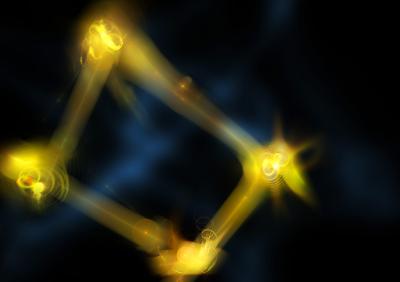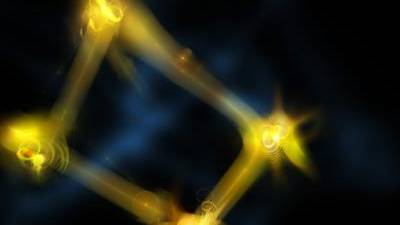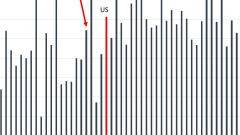Quantum Entanglement Leaps Beyond Einstein --"New States of Light"
Source: dailygalaxy.com

In 1935, Albert Einstein, Boris Podolsky, and Nathan Rosen, commonly referred to as EPR, published a thought experiment designed to show that quantum mechanics, by itself, is not sufficient to describe reality. Using two entangled particles EPR tried to demonstrate that there must be some hidden parameters that quantum mechanics does not account for.
Later John Bell and others showed that the kind of hidden parameters EPR had in mind are incompatible with our observations. The mystery at the heart of quantum mechanics thus remains intact. But the entanglement first proposed by EPR is now a valuable resource in emerging quantum technologies like quantum computing, quantum cryptography, and quantum precision measurements.
Quantum entanglement is one of the central principles of quantum physics, which is the science of sub-atomic particles. Multiple particles, such as photons, are connected with each other even when they are very far apart and what happens to one particle can have an effect on the other one at the same moment, even though these effects can not be used to send information faster than light.
Now, physicists at the University of Calgary and at the Institute for Quantum Computing in Waterloo have published new research in Nature Physics which builds on the original ideas of Einstein and adds a new ingredient: a third entangled particle.
The new form of three-particle entanglement demonstrated in this experiment, which is based on the position and momentum properties of photons, may prove to be a valuable part of future communications networks that operate on the rules of quantum mechanics, and could lead to new fundamental tests of quantum theory that deepen our understanding of the world around us.
"This work opens up a rich area of exploration that combines fundamental questions in quantum mechanics and quantum technologies," says Christoph Simon, paper co-author and researcher at the University of Calgary. This research extends the theories of Einstein, seventy-seven years later.
"It is exciting, after all this time, to be able to finally create, control, and entangle, quantum particles in this new way. Using these new states of light it may be possible to interact with and entangle distant quantum computer memories based on exotic atomic gases, " says Thomas Jennewein, whose group at the University of Waterloo carried out the experiment.
[...]
Read the full article at: dailygalaxy.com






















